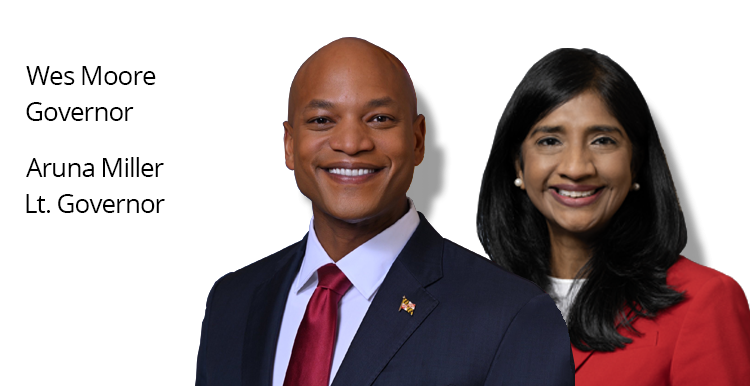Commissioners
Commission Members
The Maryland Commission on Indian Affairs is composed of nine members appointed by the governor of Maryland and confirmed by the Maryland State Senate. A majority of these nine members must be American Indian residents of Maryland, and at least three members must be from American Indian groups indigenous to Maryland. Each member of the commission is appointed based on a demonstrated knowledge of American Indian culture and history, and understanding of the needs and concerns of American Indian communities. Commissioners are appointed a term of three-years, and can serve up to six years consecutively. In the event a successor has not been appointed at the conclusion of a commissioner’s term, the commissioner may continue to serve on the commission until one is appointed.
Tribal Affiliation:
Chair:
Tiara Thomas (Piscataway Conoy Tribe, Charles County) – Tiara is currently working with the University of Maryland to document the history of the Piscataway and was instrumental in establishing the Yahentamitsi Dining Hall at the University of Maryland, College Park and launching the Southern Maryland National Heritage Area.
Vice Chair:
Tom Bradshaw (Nause-Waiwash Band of Indians, Dorchester County) – Tom is a former member and past Vice President of the Dorchester County Council with a lifelong career in the agricultural, seafood and timber industries. He also has lifelong ties to a range of cultural institutions and initiatives committed to supporting and promoting indigenous history, including serving as the Maryland Association of Counties representative on the Maryland Heritage Areas Authority Board.
Members:
Anne Marie Begay (Navajo Nation, Howard, County) – a budget analyst with the U.S. Department of the Interior-Bureau of Indian Affairs and a community organizer for Howard County government focused on the celebration and education of American Indian and indigenous culture. She helped establish Indigenous People’s Day in Howard County and has been recognized for her Native American advocacy work, including efforts to ensure American Indians in Washington, DC, Maryland and Virginia received COVID-19 vaccines.
Lawrence Dunmore, III (Occaneechi Band of the Saponi Nation, Baltimore, County) – a senior program analyst and former unofficial acting tribal manager for the Bureau of Trust Fund Administration in the U.S. Department of the Interior. He currently serves as Folklorist and Historian for the Occaneechi Band and has published articles about the tribe’s history.
Norris Howard, Jr. (Pocomoke Indian Nation, Somerset County) – the son of Paramount Chief Norris Howard, Sr. of the lower Eastern Shore. Recently retired from the Maryland Office of the Public Defender in Salisbury where he was an investigator for 40 years, he is now a tribal artist and historian
Peter Landeros (Pascua Yaqui Tribe, Howard County) – supported by Chief Mark Tayac of the Piscataway Indian Nation. He is regional president of the American Indian Movement and in that capacity advocates on a range of issues, including Missing and Murdered Indigenous Women and People. He also promotes cultural events such as traditional socials and powwows, recently assisting Bowie State University with its inaugural powwow this past November.
Ken Maynor (Lumbee Indian Tribe, Anne Arundel County) – has a long career in technology sales, with more than 20 years at Intel, where he was a global account manager and senior account executive. He is currently the owner of Stretch Zone franchises in Pikesville and Clarksville.
Tierra Robinson (Piscataway Conoy Tribe – Choptico Band of Indians, Prince George’s County) – an environmental scientist and inspector with the U.S. Environmental Protection Agency and former environmental scientist with the National Institutes of Health. While at the National Institutes of Health, she was active with the NIH Chapter of the Society for the Advancement of Chicanos and Native Americans in Science and a member of the Native American Scholars at the National Institutes of Health.
Clarence Tyler (Accohannock Indian Tribe, Somerset County) – The elected chief of the Accohannock Tribe on Maryland’s Eastern Shore, representing the tribe on all tribal issues in Maryland court trials. He is also a former Merchant Marine, and a former correctional officer, volunteer firefighter and certified emergency medical technician.

